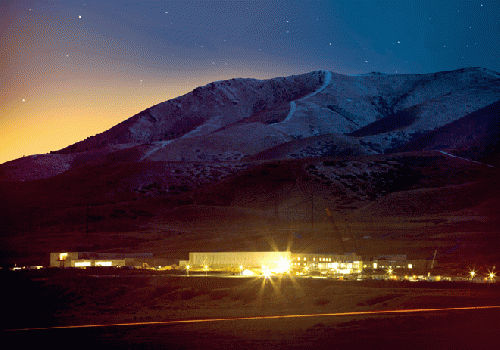"At the time, more than 100 teams of US analysts were scouring Iraq for snippets of electronic data that might lead to the bomb-makers and their hidden factories. But the NSA director, Gen. Keith B. Alexander, wanted more than mere snippets. He wanted everything: Every Iraqi text message, phone call and e-mail that could be vacuumed up by the agency's powerful computers.
"It also encapsulated Alexander's controversial approach to safeguarding Americans from what he sees as a host of imminent threats, from terrorism to devastating cyberattacks.
"In his eight years at the helm of the country's electronic surveillance agency, Alexander, 61, has quietly presided over a revolution in the government's ability to scoop up information in the name of national security. And, as he did in Iraq, Alexander has pushed hard for everything he can get: tools, resources and the legal authority to collect and store vast quantities of raw information on American and foreign communications."
Aside from how obviously menacing and even creepy it is to have a state collect all forms of human communication -- to have the explicit policy that literally no electronic communication can ever be free of US collection and monitoring -- there's no legal authority for the NSA to do this. Therefore:
"[E]ven his defenders say Alexander's aggressiveness has sometimes taken him to the outer edge of his legal authority."
"The outer edge of his legal authority": that's official-Washington-speak for "breaking the law," at least when it comes to talking about powerful DC officials (in Washington, only the powerless are said to have broken the law, which is why so many media figures so freely call Edward Snowden a criminal for having told his fellow citizens about all this, but would never dare use the same language for James Clapper for having lied to Congress about all of this, which is a felony). That the NSA's "collect it all" approach to surveillance has no legal authority is clear:
"One Democrat who confronted Alexander at a congressional hearing last month accused the NSA of crossing a line by collecting the cellphone records of millions of Americans.
"'What authorization gave you the grounds for acquiring my cellphone data?' demanded Sen. Jeff Merkley (D-Ore.), waving his mobile phone at the four-star general."
I know this is not as exciting to some media figures as Snowden's asylum drama or his speculated personality traits. But that the NSA is collecting all forms of electronic communications between Americans as well as people around the world -- and, as I've said many times, thereby attempting by definition to destroy any remnants of privacy both in the US and globally -- is as serious of a story as it gets, particularly given that it's all being done in secret. Here's another former NSA whistleblower, from the Post article, explaining why that is:
"'He is absolutely obsessed and completely driven to take it all, whenever possible,' said Thomas Drake, a former NSA official and whistleblower. The continuation of Alexander's policies, Drake said, would result in the 'complete evisceration of our civil liberties.'"
Numerous NSA documents we've already published demonstrate that the NSA's goal is to collect, monitor and store every telephone and internet communication that takes place inside the US and on the earth. It already collects billions of calls and emails every single day. Still another former NSA whistleblower, the mathematician William Binney, has said that the NSA has "assembled on the order of 20 trillion transactions about US citizens with other US citizens" and that "estimate only was involving phone calls and emails."
The NSA is constantly seeking to expand its capabilities without limits. They're currently storing so much, and preparing to store so much more, that they have to build a massive, sprawling new facility in Utah just to hold all the communications from inside the US and around the world that they are collecting -- communications they then have the physical ability to invade any time they want ("Collect it all, tag it, store it. ... And whatever it is you want, you go searching for it").







